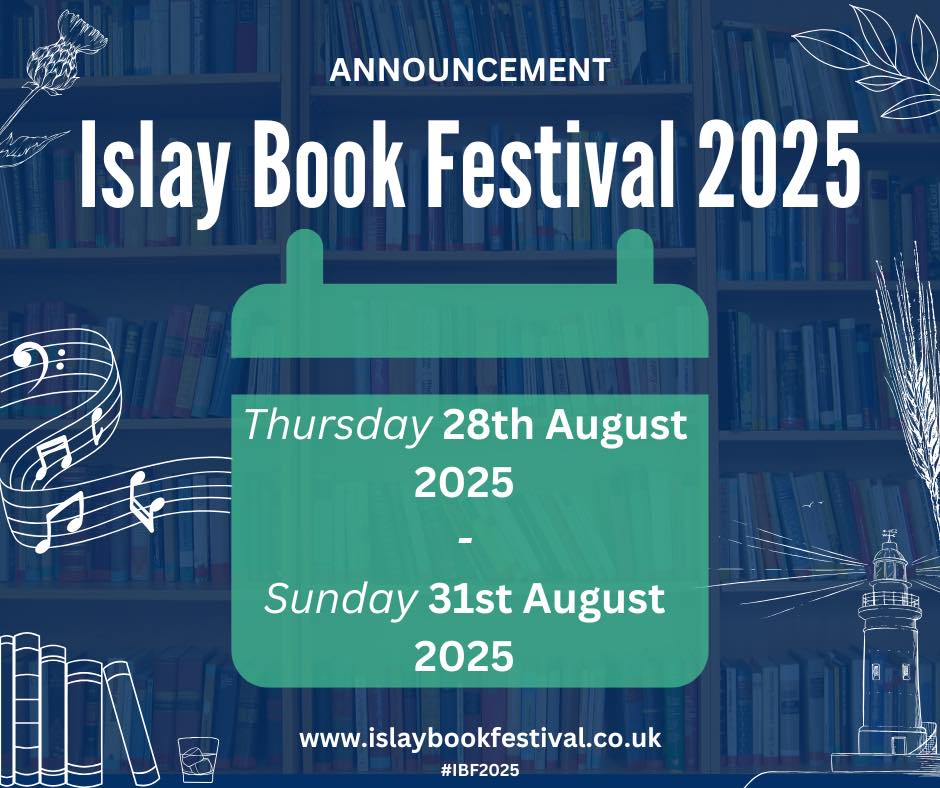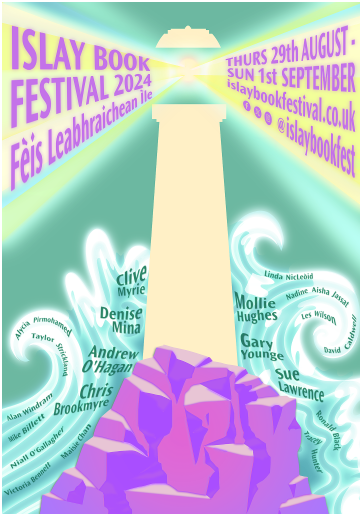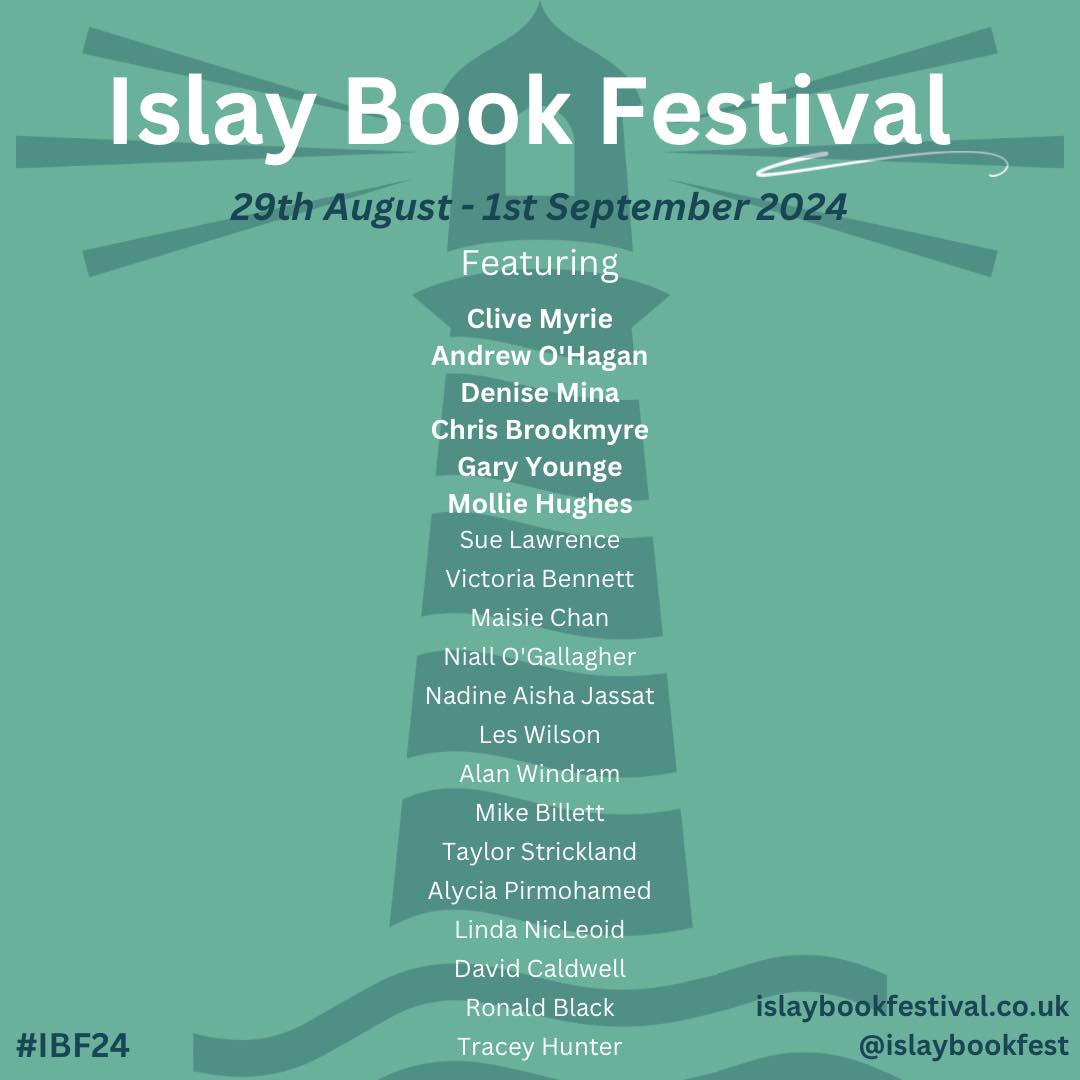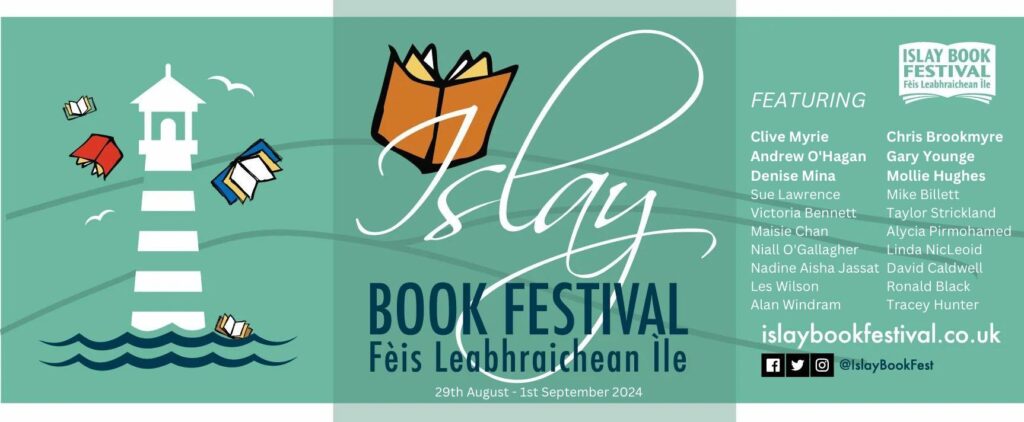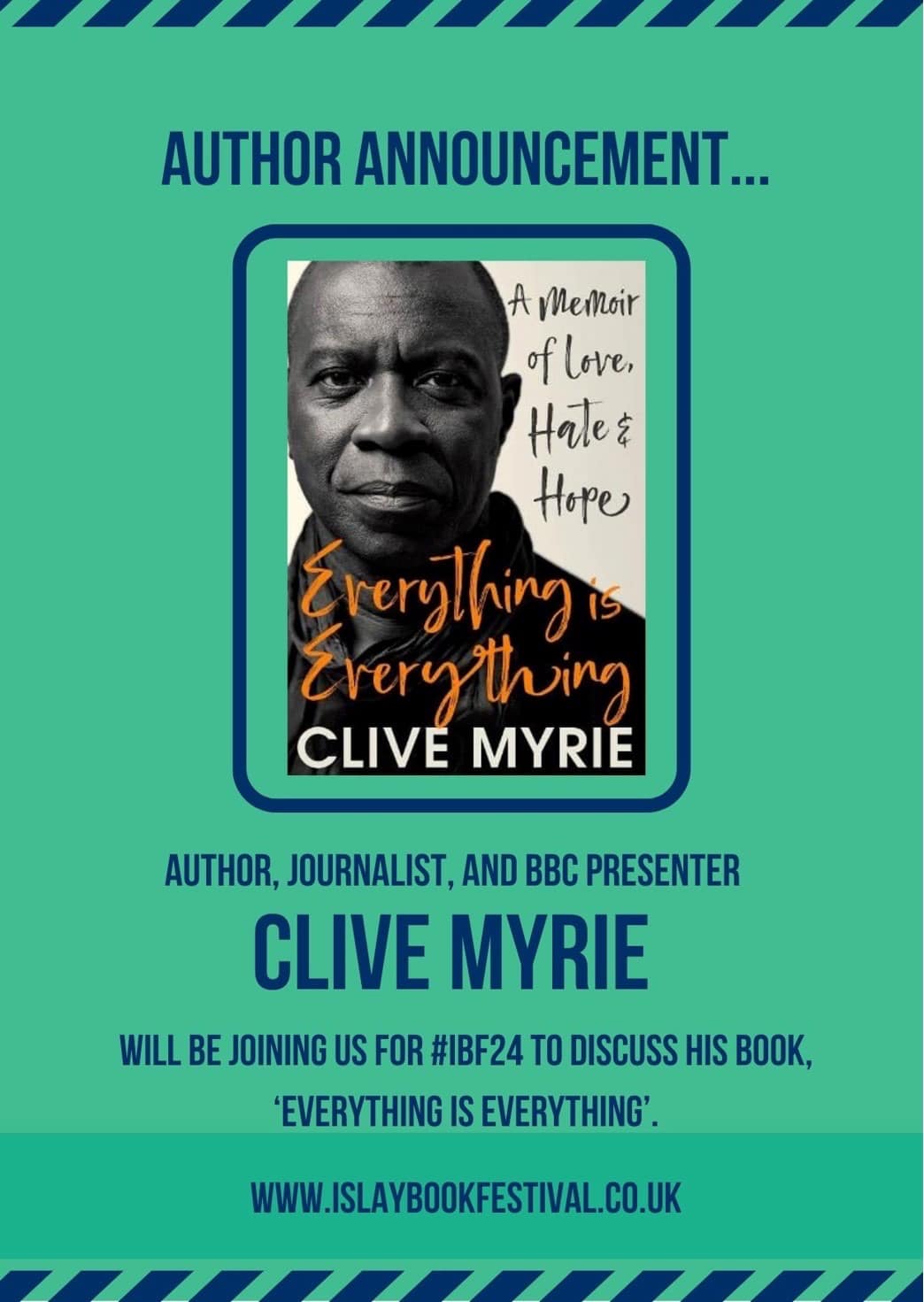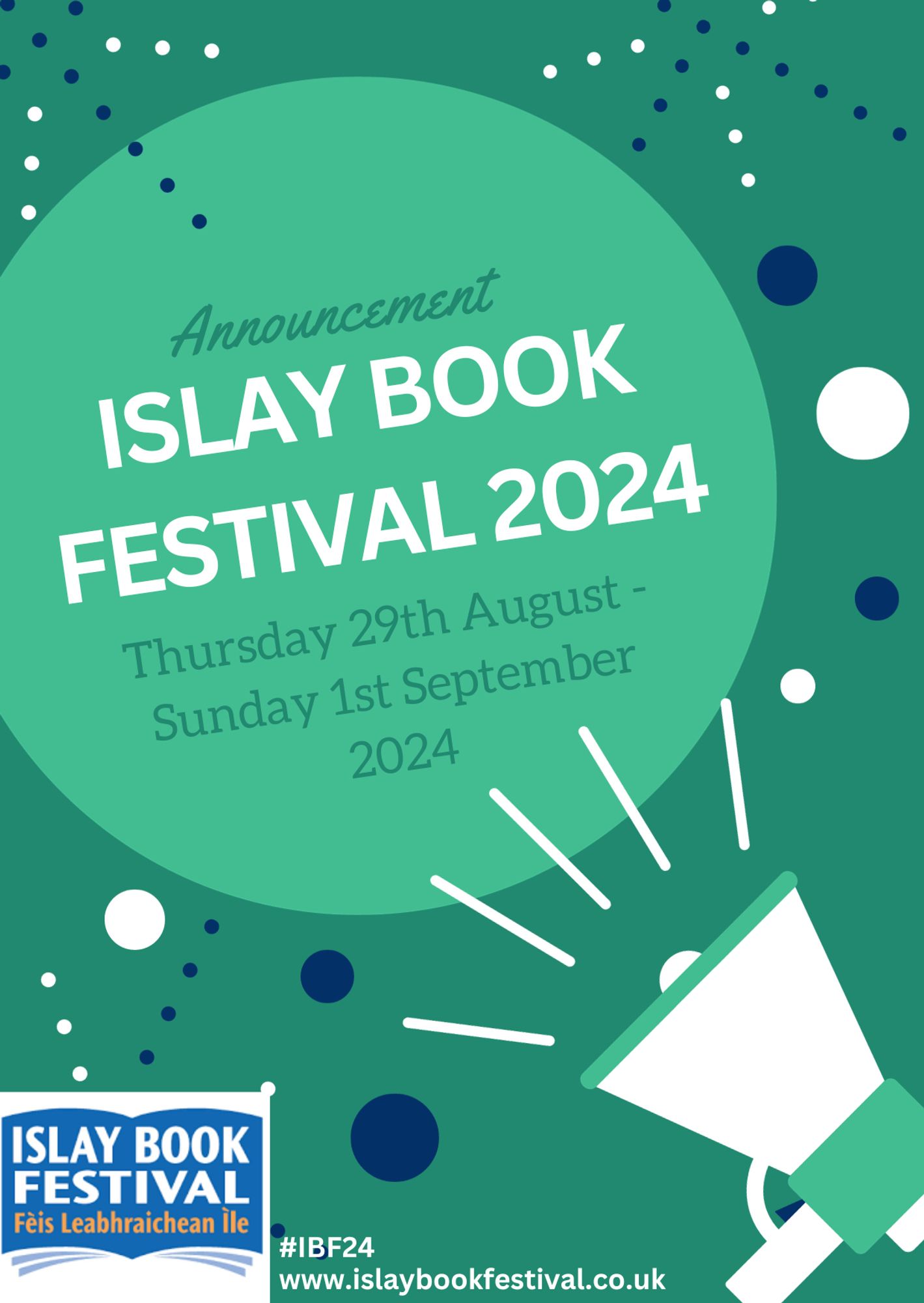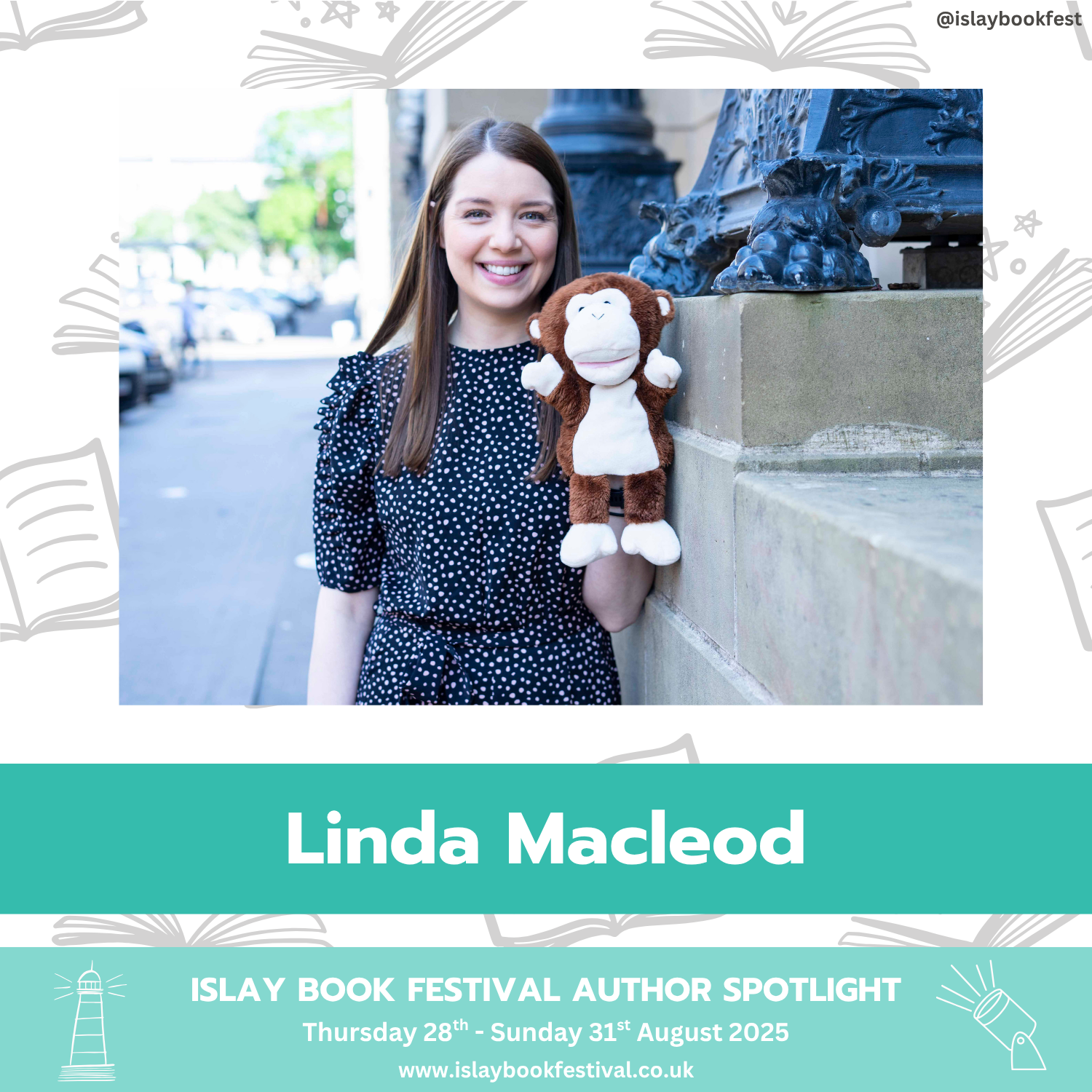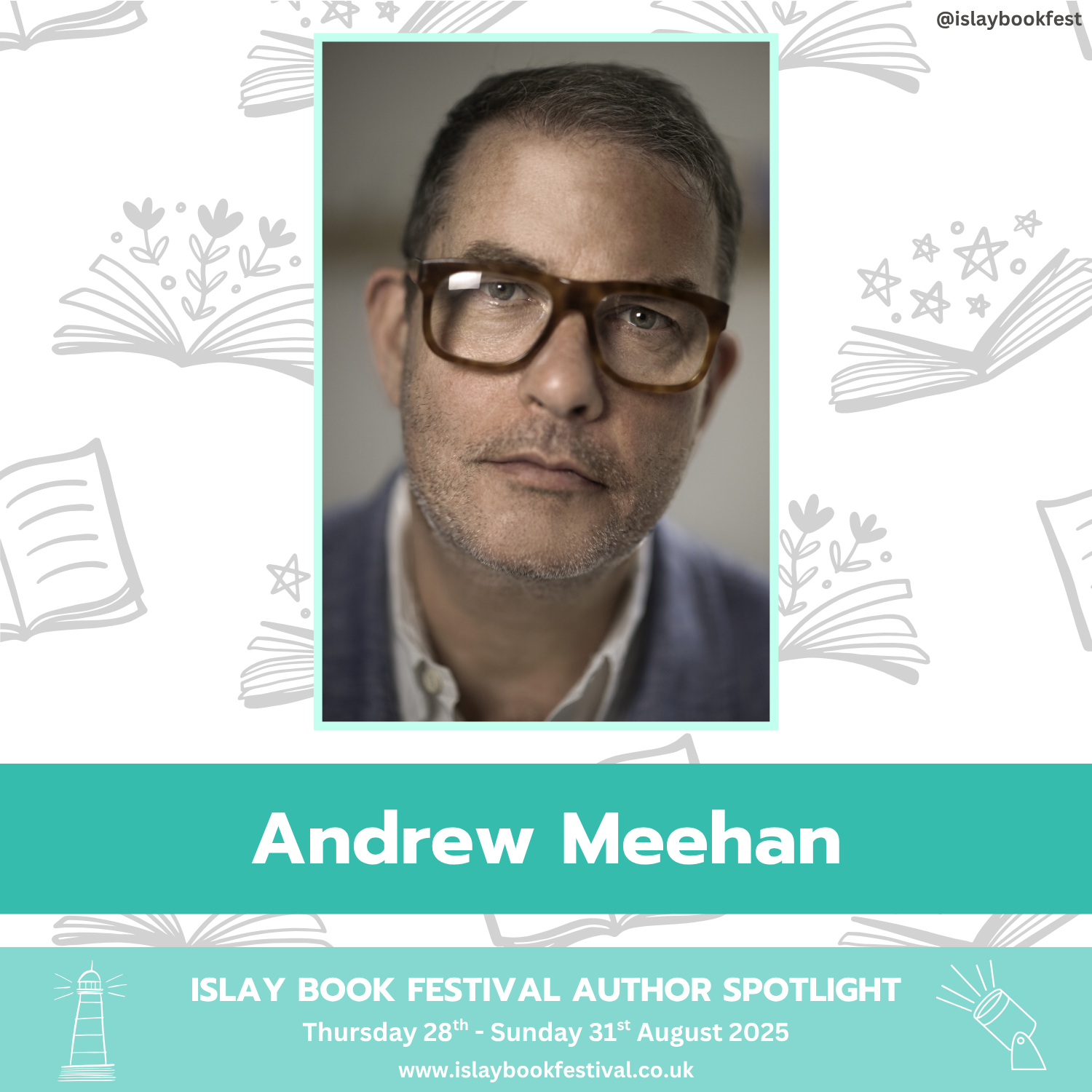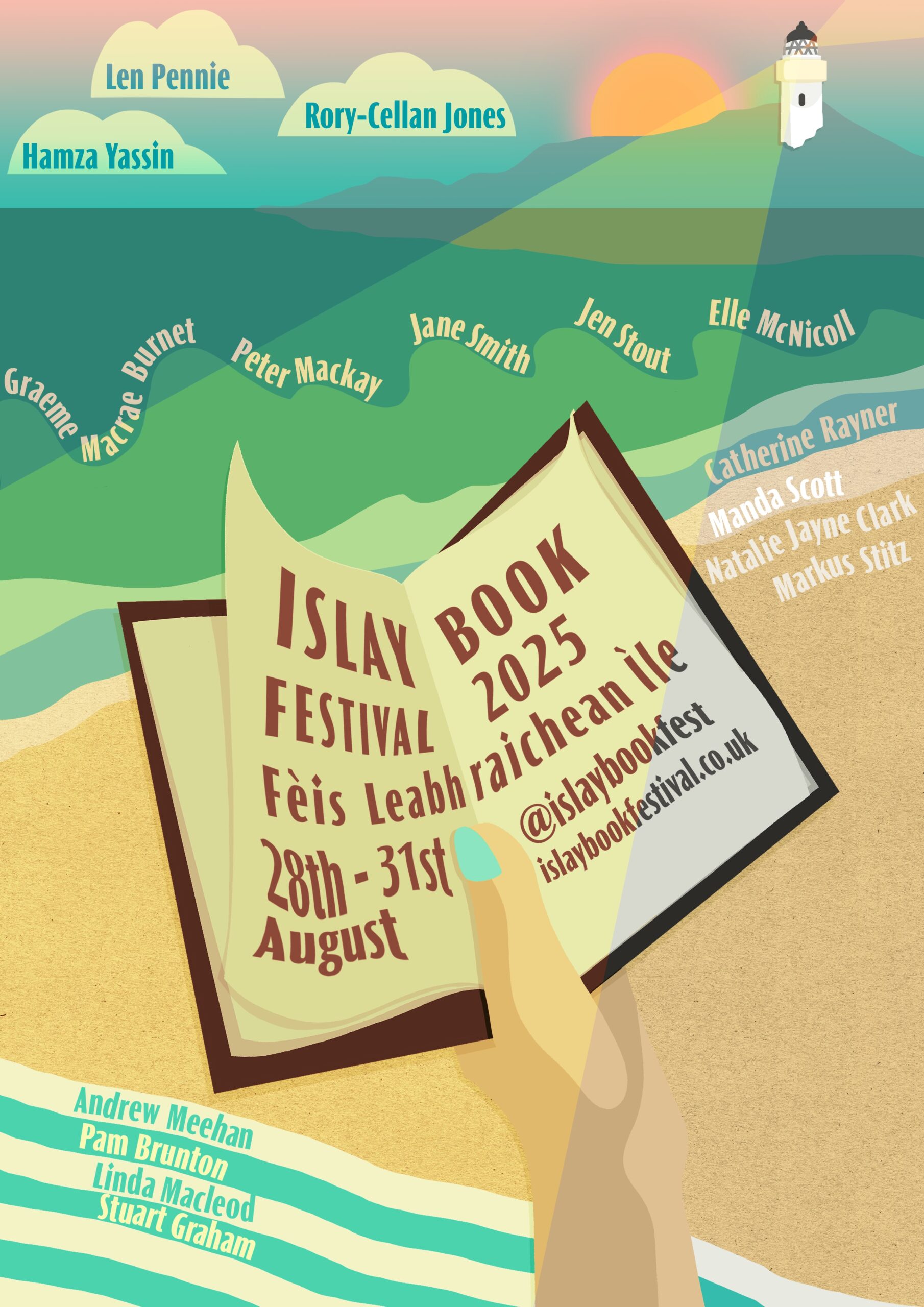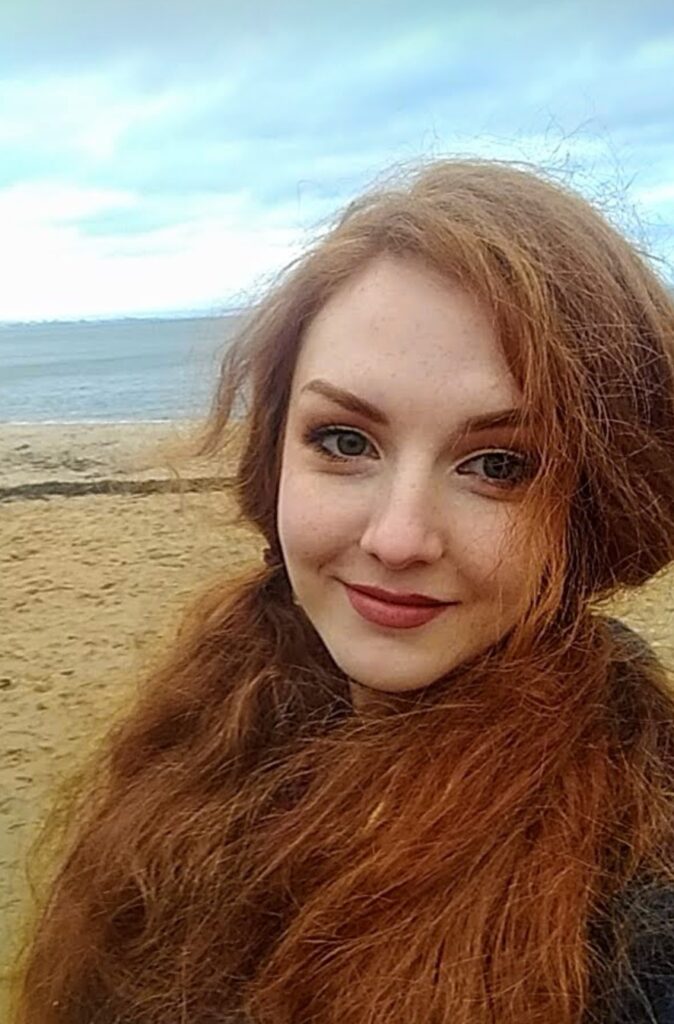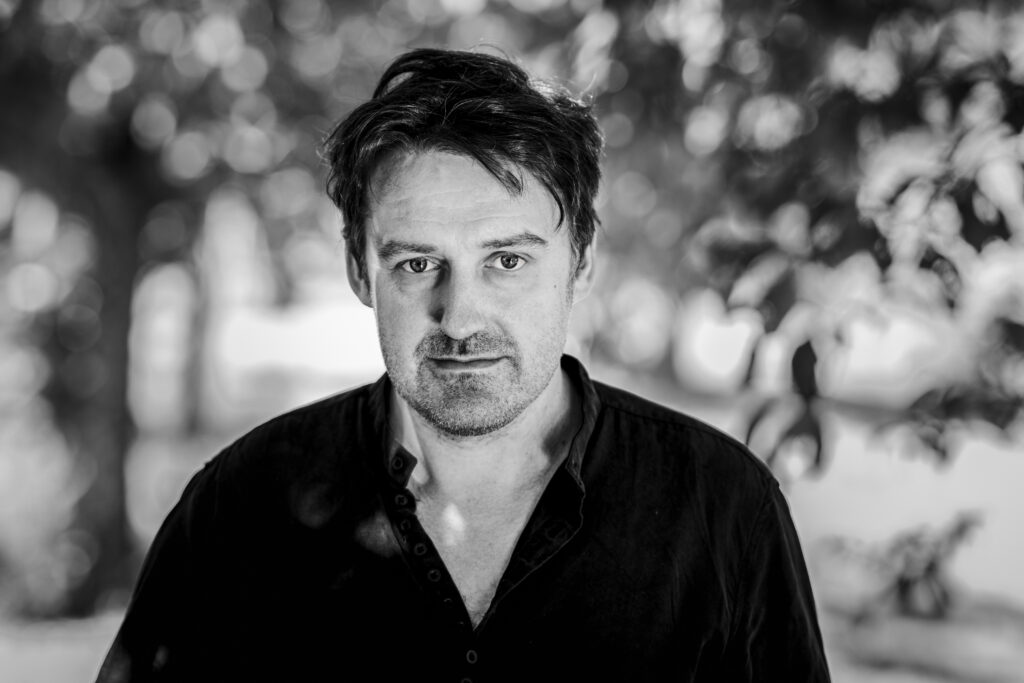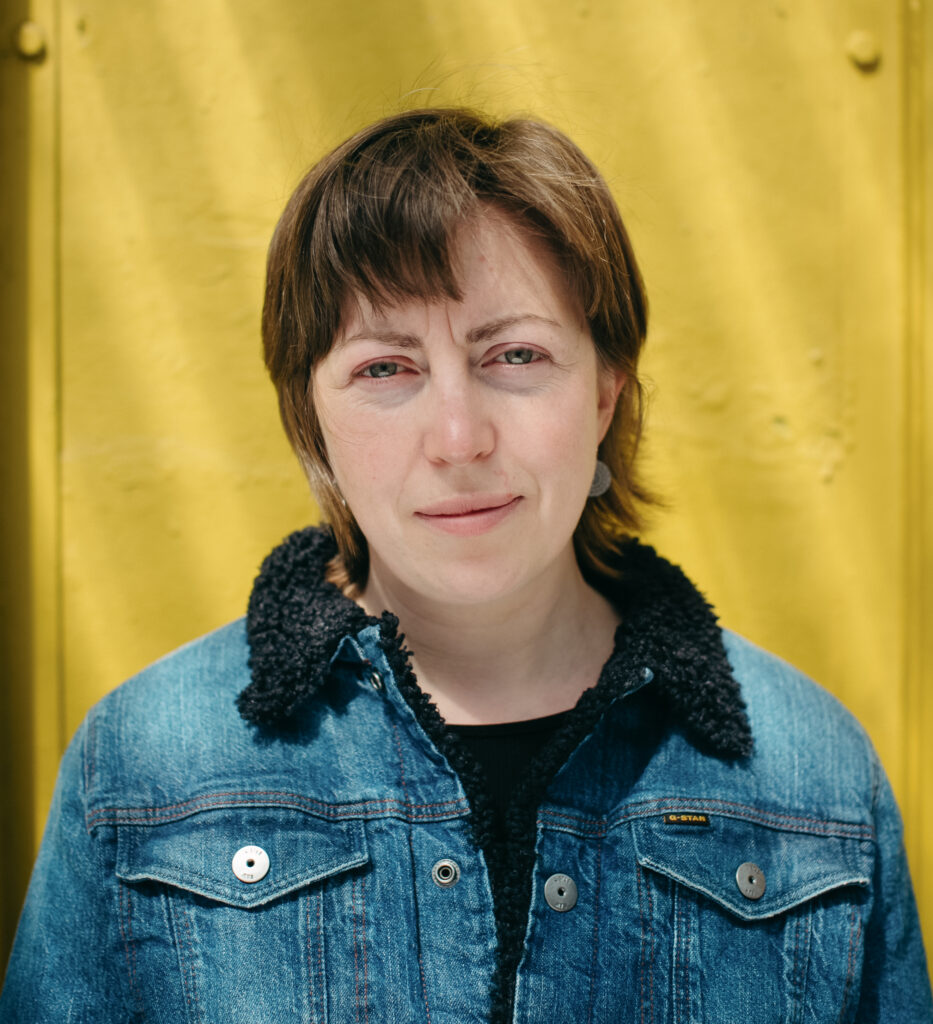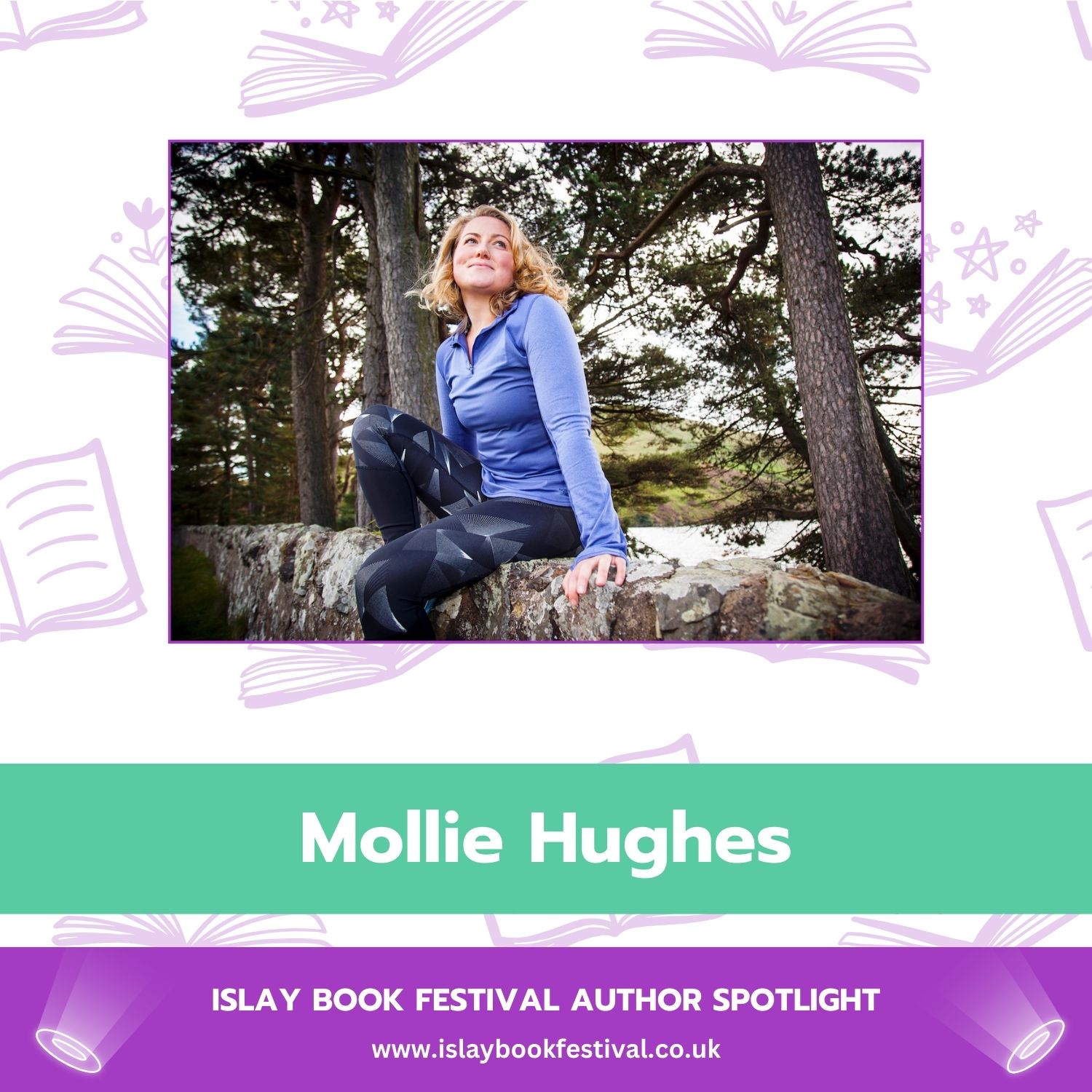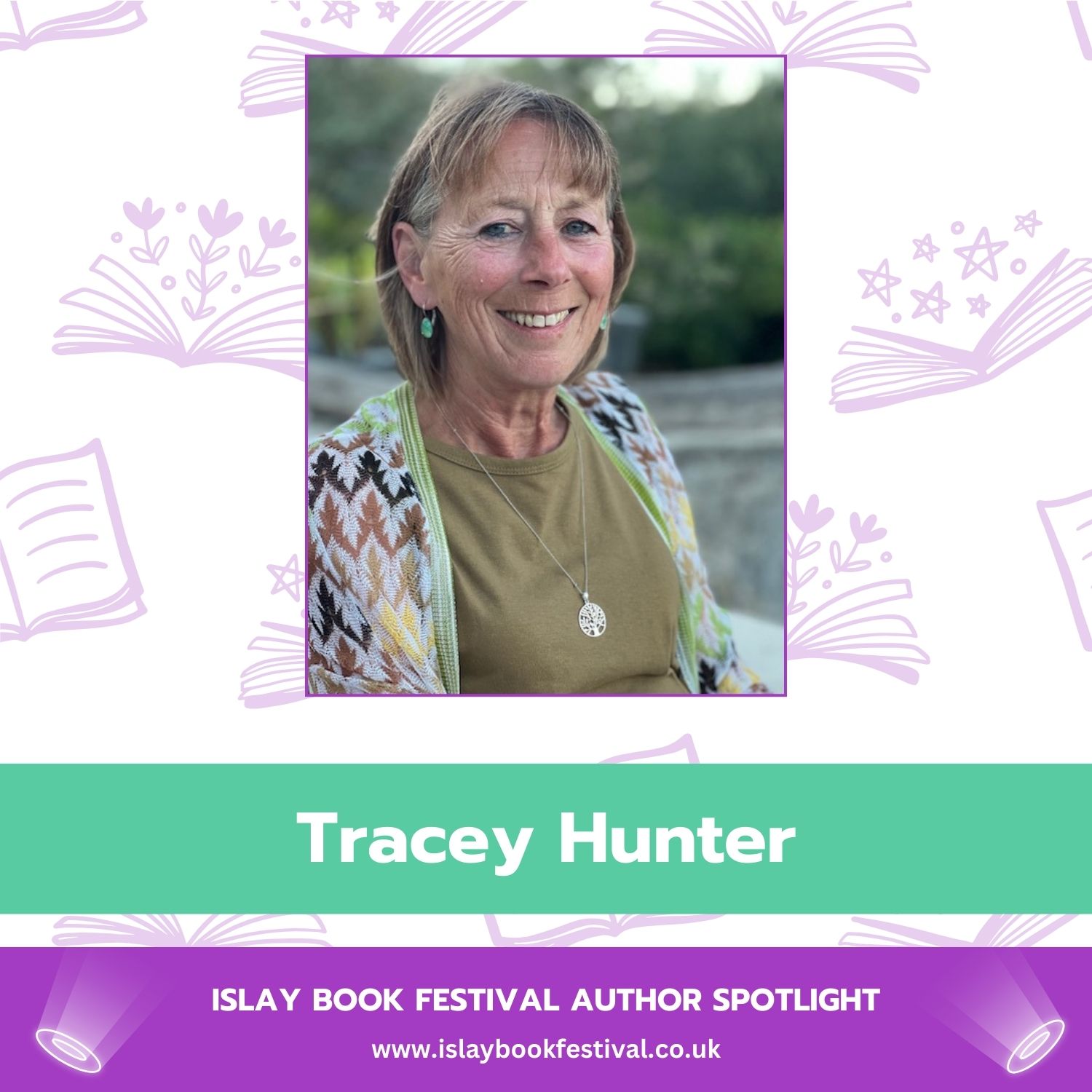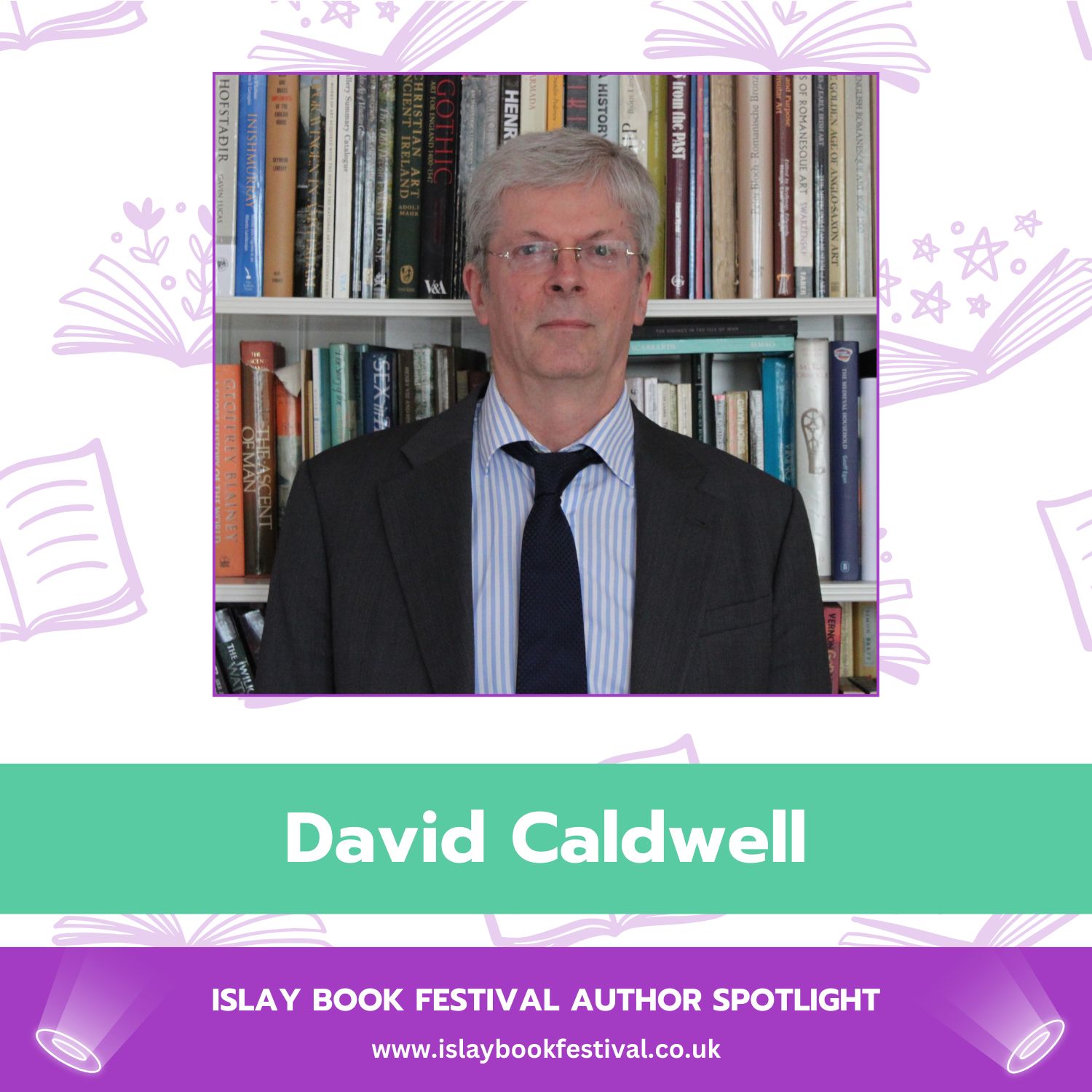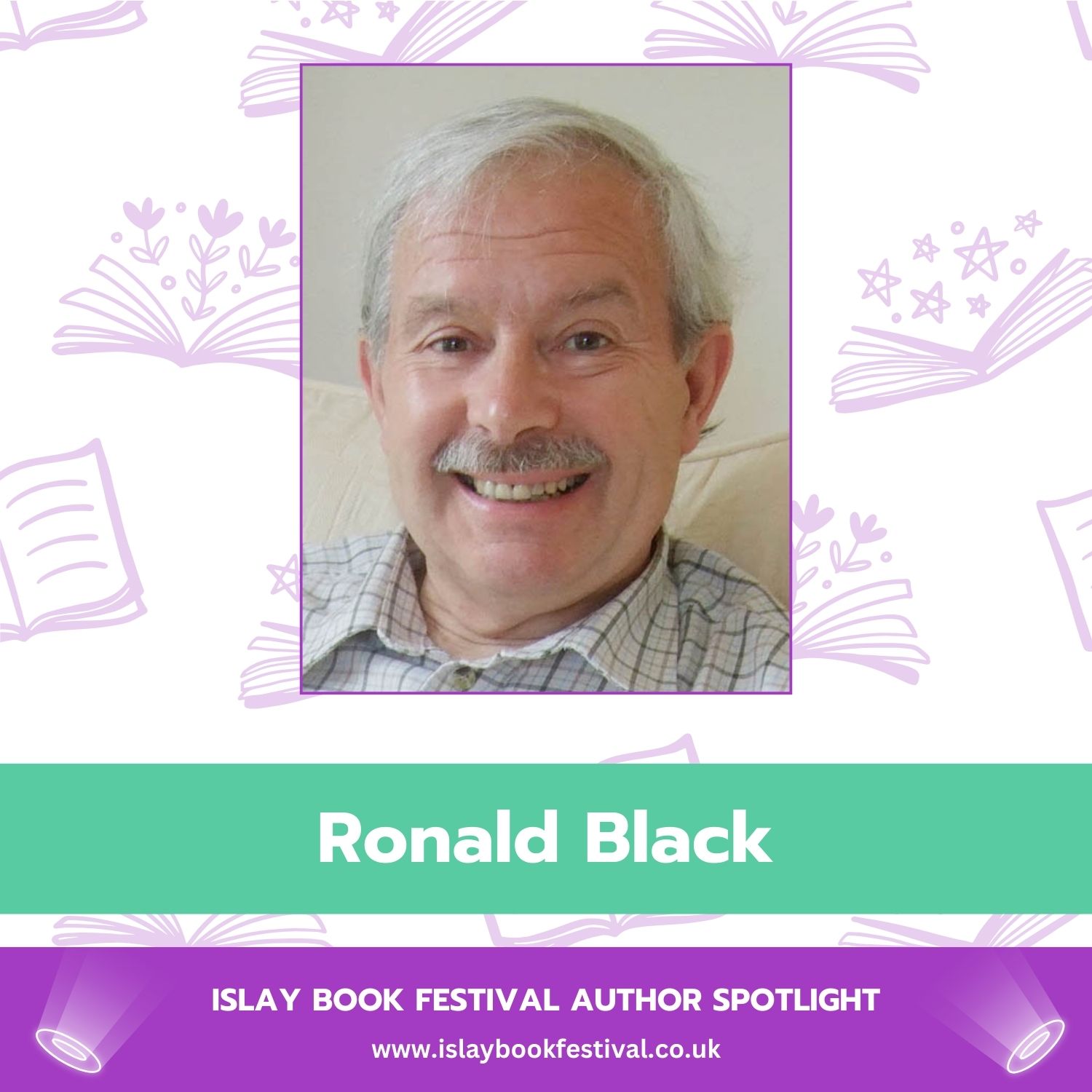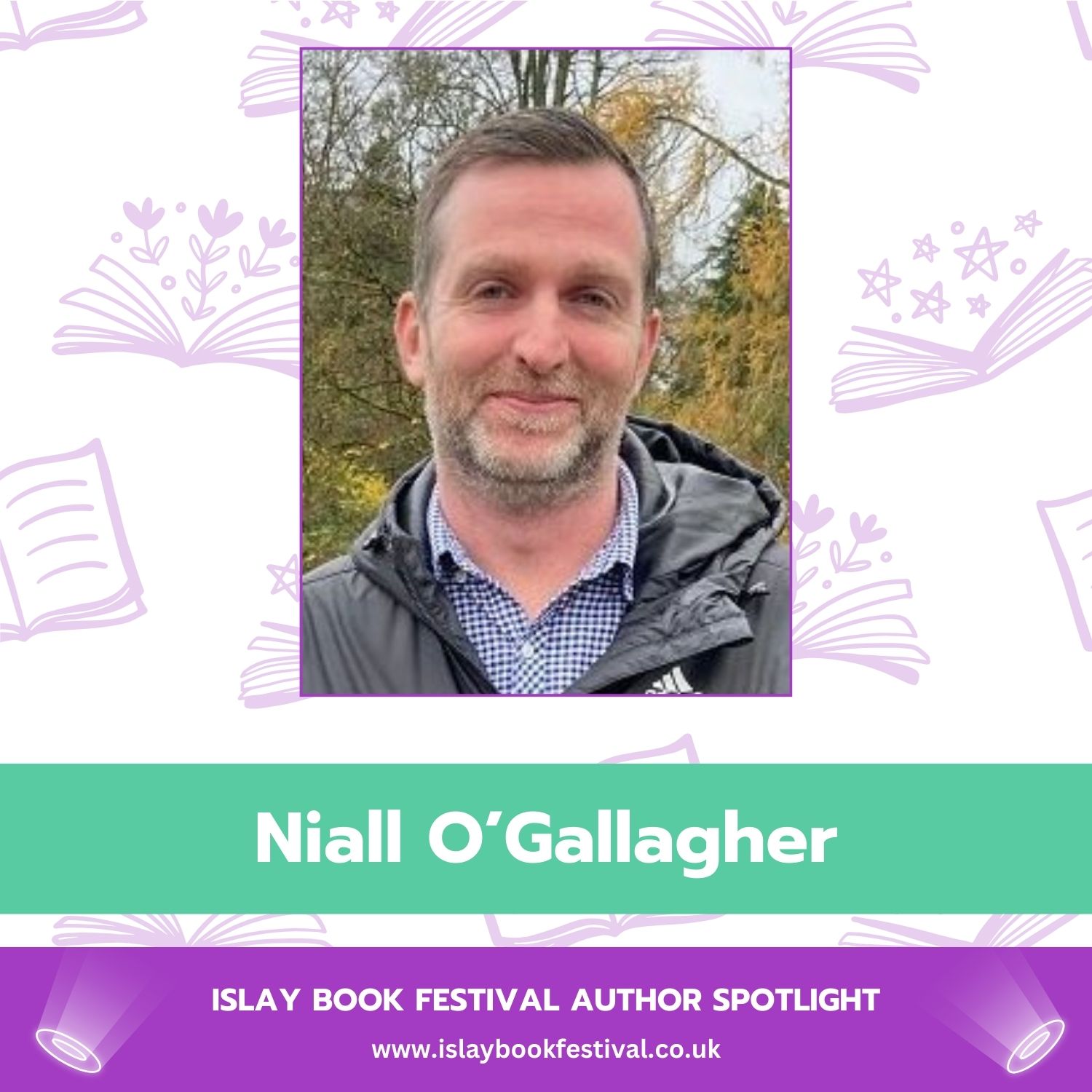The 2025 Islay Book Festival is just 3 months away!
This year’s festival takes place from Thursday 28th to Sunday 31st August and it promises to be better than ever!
You may have seen some of our announcements on social media, but just in case you’ve missed them, let us whet your appetite for some of the incredible authors who will be coming to join us in August.
Scotland’s first Gaelic Makar, Peter Mackay, will open the festival on Thursday 28 August in the Round Church in conversation with Iseabail Mactaggart, whose wide ranging career includes experience in Gaelic media and the arts.
Peter will be followed by Hamza Yassin, renowned wildlife cameraman and presenter, whose memoir Homeward Bound will be released early as a special opportunity for Islay Book Festival audiences. (If you’re too old to have seen Hamza on the children’s show Ranger Hamza, you might remember him from 2022 when he won Strictly Come Dancing.)
Friday will feature daytime events with Andrew Meehan, author of a novel about late in life love, and crime writer Natalie Jayne Clark, who will pair her new book with tasting drams at Bruichladdich Distillery, for a session hosted by head distiller Adam Hannett. In the evening, we’ll be at St. John’s in Port Ellen, where we’ll have novelist Graeme Macrae Burnet, followed by Len Pennie sharing selected pieces from Poyums, which was a recent winner at the British Book Awards. (You may know Len from her popular “Scots Word of the Day” videos on Instagram.)
Saturday daytime will be all about experiences: a morning screen printing workshop at RSPB Gruinart with Jane Smith, Western Scotland wildlife filmmaker, artist and author, who will also be interviewed about her newest book, Community, by Lord Robertson; a midafternoon, family-friendly exploration of Bridgend Woods with Ranger Hamza; and a bike ride with Markus Stitz, author of several cycling guidebooks for Scotland, with a film, talk, and treats to follow at the Machrie.
On Saturday evening, back in the Round Church, Rory Cellan-Jones, a 40-year veteran of the BBC, will share the story of the rescue dog immortalised in his recent book Sophie from Romania. The paperback edition will be released early for the Islay Book Festival.
On Sunday, three final events all located around the Rhinns will round out the festival: in Bruichladdich Hall, journalist Jen Stout will discuss Night Train to Odesa, winner of a Scotland National Book Award, which recounts her experiences in Moscow when Russia invaded Ukraine. Award-winning Inver chef, Pam Brunton, will chat about her book Between Two Waters over bites of local delicacies at Lochindaal Seafood Kitchen. Then we’ll finish back in Bruichladdich Hall with a discussion with Manda Scott about her new genre-bending book Any Human Power, a work of fiction that strives to create a blueprint for a more regenerative future.
In addition to the public programme, the Festival will continue its substantial schools programme, this year featuring Catherine Rayner, Elle McNicoll, and Linda NicLeòid in addition to Hamza Yassin, Peter Mackay and Len Pennie. Stuart Graham, author of These Men Are Worth Your Tears – Islay and Jura in World War I, will speak to residents of Gortanvogie Care Home about his forthcoming book on World War II.
We’re sure you’ll agree that this stellar line-up is not to be missed.
If you need more convincing, visit our social media to see the best of last year’s festival.
Event specifics including locations and ticketing will be announced here and on our social media – make sure to follow us on Facebook, Bluesky, or Instagram to be the first to hear.
We hope we’ll see you in August!
